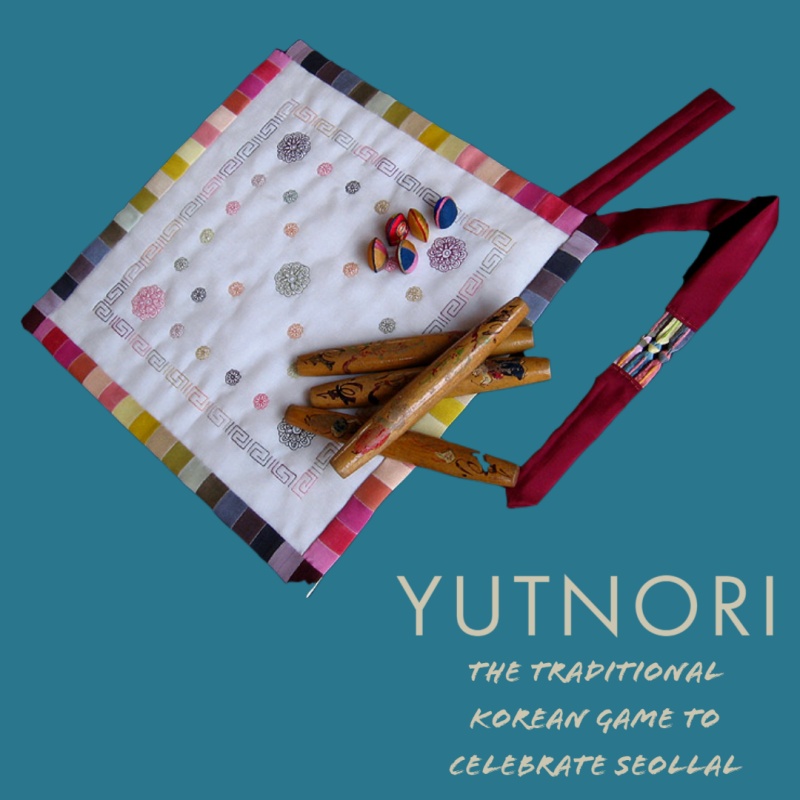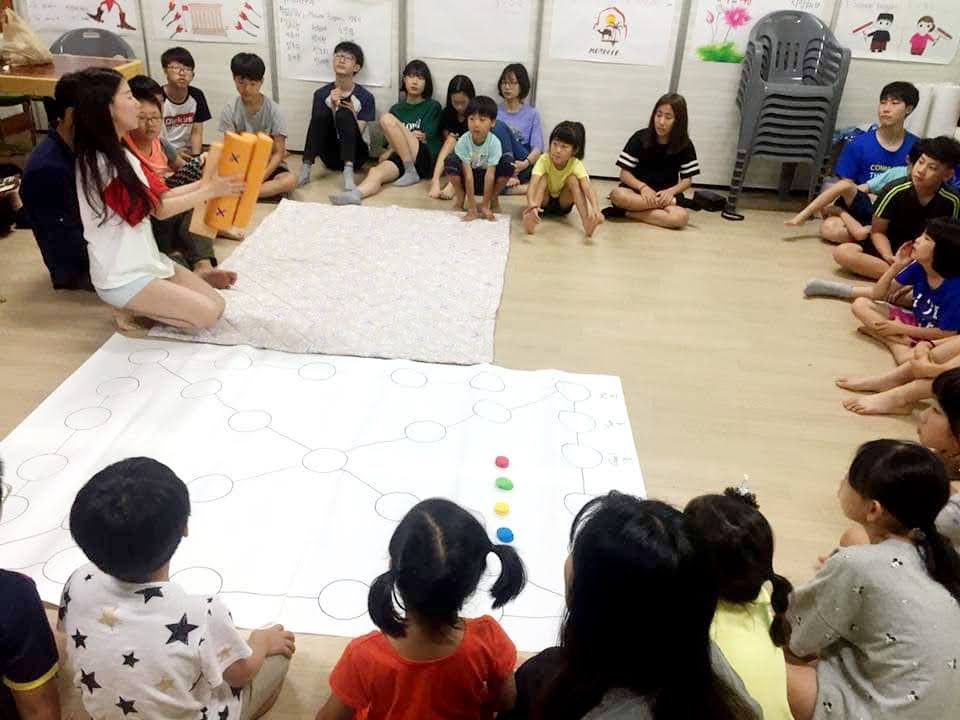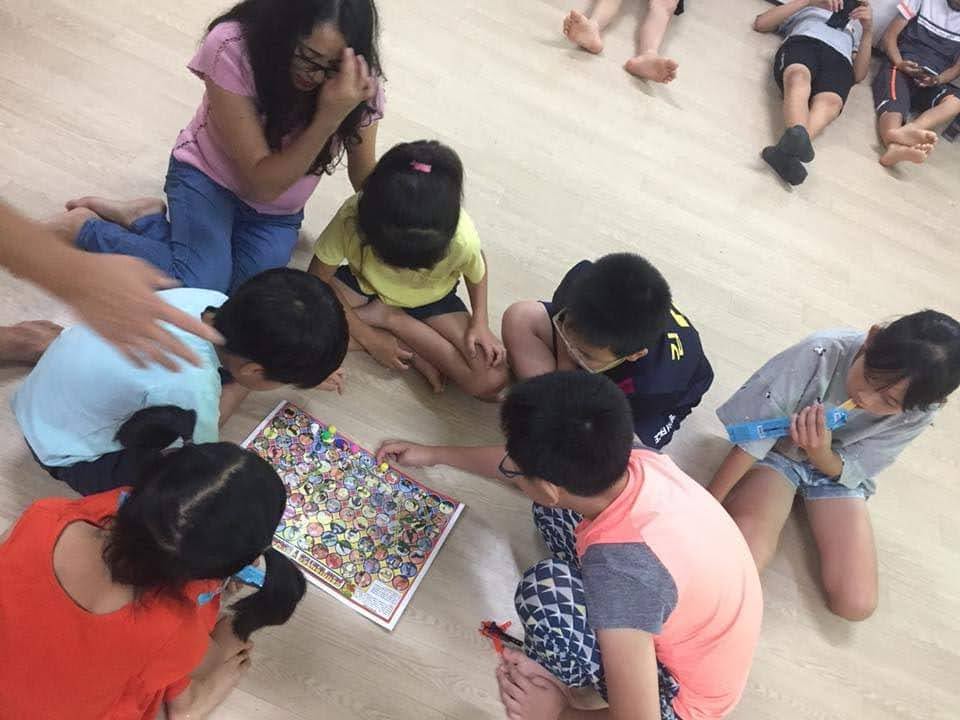- 한국어
- English
- 日本語
- 中文
- العربية
- Español
- Français
- Deutsch
- Pусский
- Tiếng Việt
- Indonesian
By Honorary Reporter Veronica Zuniga from Mexico
Photo = Veronica Zuniga

(Veronica Zuniga)
A major part of Seollal (Lunar New Year) has traditionally been folk games such as yutnori, a traditional board game using four sticks believed to date back to the era of the Three Kingdoms (57 B.C.-668) on the Korean Peninsula.
The game originated from farmers who competed to be the first to reach the market with their cattle. This is why the game's movements are related to cattle from that era: pigs, sheep, cows, horses and dogs (which were considered cattle at the time).

Young people at a workcamp in 2018 are shown how to play yutnori. (Veronica Zuniga)
To learn more about Korean culture, I learned how to play yutnori at a summer camp where I volunteered. The children there explained to me the rules and the game's importance in the history of Korean culture and the celebration of Seollal.
Rules
The board has a square path crossed by two diagonals. The sides have five positions and the diagonals seven, including the common vertex and the central squares. The chips always advance and can go the long or short way in each common position. Each chip that returns to the starting square, without going over, leaves the game and scores a point for its team. Each square on the board has its own name, though rarely used.
Throws are decided by throwing four sticks into the air. According to the number of sticks that fall heads or tails, an animal and a number of movements are assigned.
A single-sided suit is a do, equivalent to the pig and worth a single move; two face sticks are a gae (dog and two); three face suits are a geol (lamb and three); four face suits are a yut (cow and four plus an extra roll). The four suits of the cross are a mo, which is equivalent to the knight and worth five moves and an extra roll.
If a piece reaches a square occupied by a piece from the same team, it is placed on top of the other and from that moment, the two move together. If a piece reaches a square occupied by a piece of the opposing team, it is "eaten" and an extra roll is granted.
I found this game to be a lot of fun, and anyone can make the board at home with just a sheet of paper, poker chips to use as markers and spoons or forks to use as sticks. Yutnori also encourages teamwork among players and can provide hours of fun.

At the same summer camp, I taught children there the Indian game Snakes and Ladders, which is popular in Mexico. (Veronica Zuniga)
enny0611@korea.kr
*This article is written by a Korea.net Honorary Reporter. Our group of Honorary Reporters are from all around the world, and they share with Korea.net their love and passion for all things Korean.
Most popular
- Slew of festivals, events scheduled in downtown Seoul in May
- Korea.net welcomes 2025 K-influencers, Honorary Reporters
- 2025 Honorary Reporter class pledges to spread 'real Korea' worldwide
- US urged to exempt tariffs on Korea in first '2+2' trade talks
- Korean culture festival in Cuba marks 1st year of bilateral ties
